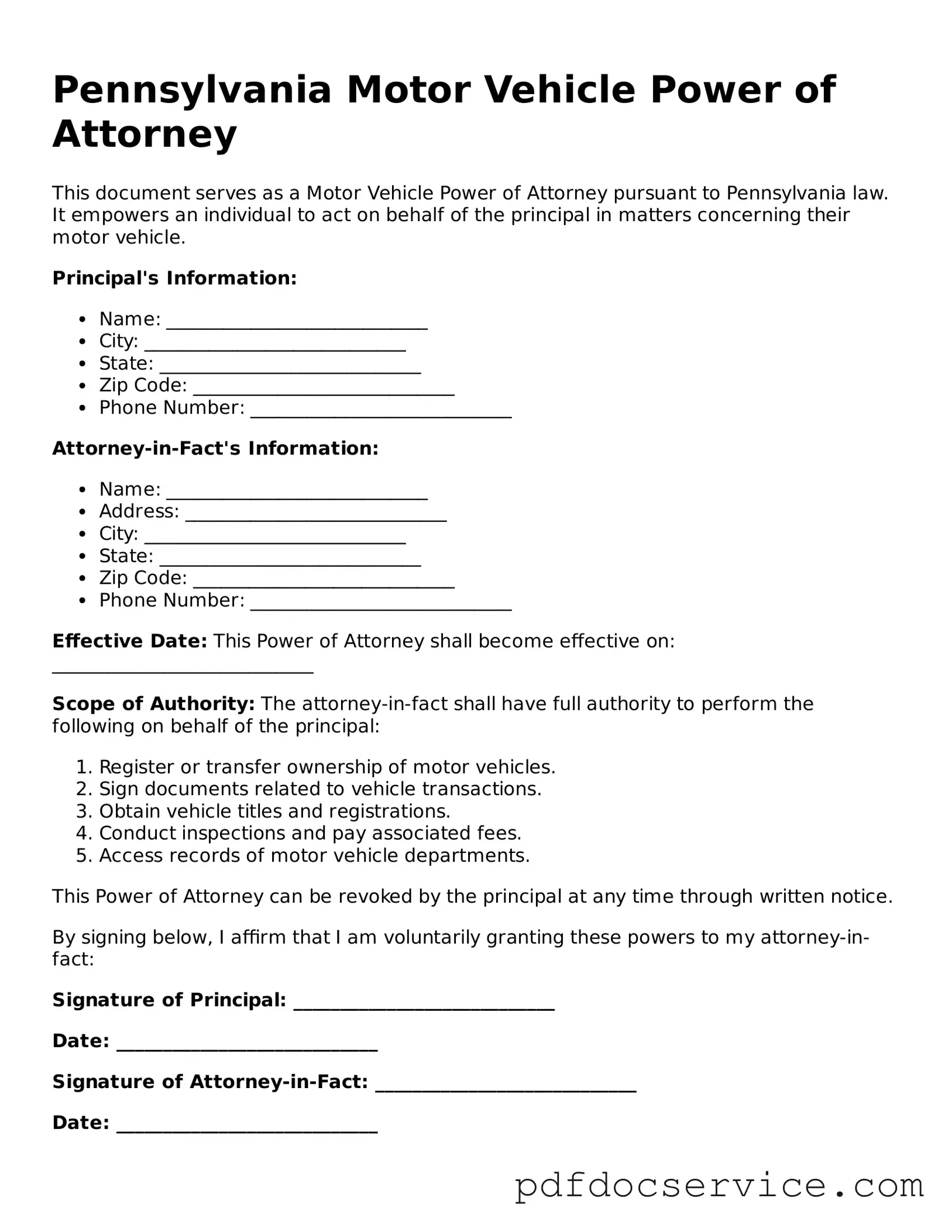Printable Motor Vehicle Power of Attorney Template for Pennsylvania
The Pennsylvania Motor Vehicle Power of Attorney form is a legal document that allows one person to grant another the authority to handle specific motor vehicle-related tasks on their behalf. This form is essential for those who may be unable to manage their vehicle transactions due to various reasons, such as illness or absence. By using this form, individuals can ensure that their vehicle matters are taken care of efficiently and effectively.
Open Motor Vehicle Power of Attorney Editor

Printable Motor Vehicle Power of Attorney Template for Pennsylvania
Open Motor Vehicle Power of Attorney Editor

Open Motor Vehicle Power of Attorney Editor
or
Get Motor Vehicle Power of Attorney PDF
Finish the form now and be done
Finish Motor Vehicle Power of Attorney online using simple edit, save, and download steps.